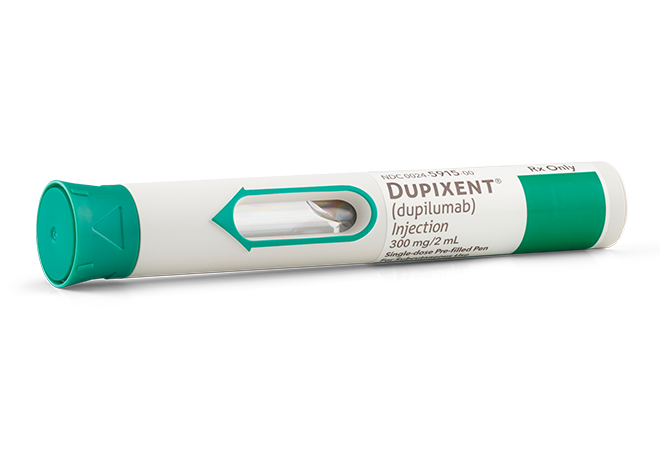Your Rights!
Miami Dupixent Lawsuit Lawyers
Fighting for South Florida Patients Diagnosed With Cutaneous T-cell Lymphoma (CTCL), Mycosis fungoides, or Sezary syndrome After Taking Dupixent
Miami’s vibrant healthcare and wellness community is home to countless residents who depend on advanced medications for chronic conditions like eczema, asthma, and sinus inflammation. One of the most prescribed of these treatments is Dupixent (dupilumab) — a biologic medication promoted for its ability to reduce inflammation and improve quality of life.
But for many Miami patients, Dupixent could be linked to Cutaneous T-cell Lymphoma (CTCL), Mycosis fungoides, or Sezary syndrome. Across Florida and nationwide, users have reported Cutaneous T-cell Lymphoma (CTCL), Mycosis fungoides, and Sezary syndrome after taking Dupixent.
If you live in Miami-Dade County and suffered complications after using Dupixent, you may be entitled to compensation. The Law Offices of Jason Turchin can help patients throughout Miami, Coral Gables, Kendall, Hialeah, and South Beach pursue justice against drug manufacturers whose products cause harm.

About Dupixent and Its Uses
Dupixent (dupilumab) is an injectable prescription medication manufactured by Sanofi and Regeneron Pharmaceuticals. It was approved by the U.S. Food and Drug Administration (FDA) to treat inflammatory conditions such as:
- Moderate to severe atopic dermatitis (eczema)
- Asthma that does not respond to standard inhalers
- Chronic rhinosinusitis with nasal polyps (CRSwNP)
- Eosinophilic esophagitis (EoE)
The drug works by blocking certain immune system proteins — interleukin-4 (IL-4) and interleukin-13 (IL-13) — to reduce inflammation. While many patients initially experience relief, growing evidence suggests Dupixent may also cause Cutaneous T-cell Lymphoma (CTCL), Mycosis fungoides, or Sezary syndrome, according to recent studies.
Reported Dupixent Side Effects Among Florida Patients
Patients in South Florida have reported numerous adverse reactions that, in some cases, required hospitalization or specialist care at facilities such as Jackson Memorial Hospital, Baptist Health South Florida, or Mount Sinai Medical Center.
Commonly Reported Side Effects May Include:
- Cutaneous T-cell Lymphoma (CTCL)
- Mycosis fungoides
- Sezary syndrome
Many of these symptoms can persist even after stopping Dupixent, leaving patients with long-term discomfort and costly medical bills.
Why Lawsuits Are Being Considered Against Dupixent’s Manufacturers
Lawsuits filed across the country may allege that Sanofi and Regeneron failed to adequately warn doctors and patients about the full scope of Dupixent’s potential side effects.
Allegations Could Include:
- Failing to disclose the risk of Cutaneous T-cell Lymphoma (CTCL), Mycosis fungoides, or Sezary syndrome
- Misrepresenting Dupixent’s long-term safety record
- Failing to conduct proper post-market surveillance
- Minimizing reported patient injuries in public disclosures
- Promoting the drug for extended use without sufficient safety data
Patients claim that, had they been properly warned, they might have requested alternative treatments or closer medical monitoring.
Your Legal Rights Under Florida Law
Under Florida product liability law, drug manufacturers can be held responsible for injuries caused by unsafe or inadequately labeled medications. Victims do not need to prove the manufacturer acted intentionally; it could be enough to show that the drug was defective, dangerous, or lacked sufficient warnings.
You May Have a Claim If:
- You were prescribed Dupixent by a Florida doctor
- You were diagnosed with Cutaneous T-cell Lymphoma (CTCL), Mycosis fungoides, or Sezary syndrome
- Your symptoms began after starting Dupixent
Our legal team can review your records, evaluate whether Dupixent caused your injuries, and pursue compensation for your losses.
Compensation Available for Miami Dupixent Victims
If Dupixent caused your injuries, you may be entitled to recover damages for both financial and emotional losses, including:
- Medical expenses
- Future care costs for chronic symptoms
- Lost wages or reduced earning capacity
- Pain and suffering
- Permanent impairment
- Emotional distress and loss of quality of life
Each case is unique, and our firm can work to calculate the full impact of your injuries under Florida law.
Steps to Take If You Were Diagnosed With Cutaneous T-cell Lymphoma (CTCL), Mycosis fungoides, or Sezary syndrome After Taking Dupixent Side Effects in Miami
If you suspect Dupixent caused your injuries, follow these steps right away:
- Seek immediate medical attention.
- Document your symptoms. Keep a daily record of pain, redness, or vision issues.
- Preserve all medication and packaging. Do not dispose of your Dupixent supplies — they may serve as evidence.
- Gather medical and pharmacy records. Proof of prescription and diagnosis is essential.
- Consult a Miami product liability lawyer. An attorney can help you understand your rights and guide you through the claims process.
Why Contact the Law Offices of Jason Turchin
The Law Offices of Jason Turchin can represent clients throughout Miami-Dade County and across Florida in defective product and pharmaceutical injury claims. Our firm has handled thousands of injury cases and is committed to helping those harmed by dangerous drugs.
When you contact our team, we can:
- Investigate your use of Dupixent and review your medical history
- Consult medical experts to evaluate your symptoms
- Obtain FDA safety data and adverse event reports
- Handle all communication with drug companies and their insurers
- Pursue maximum compensation through settlement or litigation
We work on a contingency fee basis, meaning you pay no attorney’s fees or costs unless money is recovered for you.
Florida’s Statute of Limitations
In Florida, most product liability claims must be filed within two years from the date you discovered or should have discovered your injury. However, some exceptions apply — especially for ongoing medical treatment or delayed symptom onset.
Because drug injury claims rely heavily on medical documentation, it’s best to contact a lawyer as soon as possible to preserve your rights and evidence.
Frequently Asked Questions (FAQs)
1. What side effects are linked to Dupixent lawsuits?
Most claims allege Cutaneous T-cell Lymphoma (CTCL), Mycosis fungoides, or Sezary syndrome following Dupixent use.
2. Can I file a lawsuit if I live in Miami but was treated elsewhere?
Yes. If you reside in Florida or were prescribed Dupixent here, your claim can typically be filed in Florida.
3. How do I prove Dupixent caused my injuries?
Your attorney can review your medical records, obtain expert testimony, and use pharmaceutical data to establish causation.
4. Will filing affect my ability to receive future medical care?
Filing a claim focuses on financial compensation for harm already suffered; it should not impact your current treatment options.
5. What if I still use Dupixent?
You should continue following your doctor’s advice, but you can still consult an attorney about your legal options.
6. How much does it cost to hire your firm?
There are no upfront fees or costs. You only pay if we recover money for you.
7. How long will my case take?
Some cases settle within months, while others may take longer depending on investigation and negotiations.
8. Can I file for a family member?
Yes, family members can file on behalf of a loved one if they are incapacitated or deceased due to complications.
Contact the Law Offices of Jason Turchin
If you were diagnosed with Cutaneous T-cell Lymphoma (CTCL), Mycosis fungoides, or Sezary syndrome after using Dupixent in Miami, contact the Law Offices of Jason Turchin today for a free consultation.
📞 Call (800) 337-7755 or visit www.jasonturchin.com.
Our firm can represent Miami residents and families throughout South Florida in cases involving defective medications, unsafe products, and pharmaceutical injuries. You pay no fees or costs unless we recover compensation for you.











